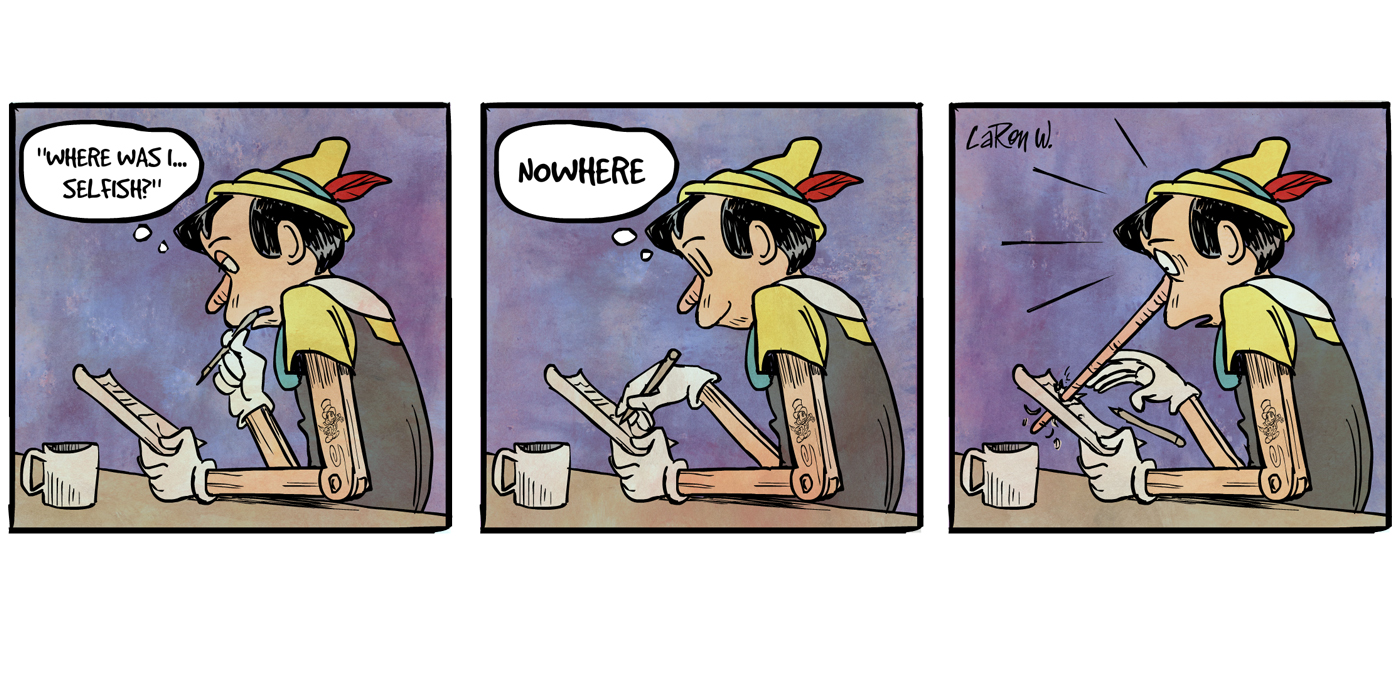For me, the Steps and Traditions have been an education in humility. My first lesson came in Step One, when I recognized and admitted my powerlessness over lust. This humility developed further in Step Two, when I came to believe in a Power greater than myself, and Step Three, when I decided to place that Power in charge of my life.
When I got to the Traditions, I got a big smack of ego-deflation right off the bat, when I learned that there is an entity more important even than me—the Group. The Group’s welfare is paramount, and supersedes the welfare of the individual. Then I found that the Group itself is not the authority. There is something greater: the Higher Power who may express Himself in our group conscience.
Group conscience meetings were painful for me. Here I’d come, with my sheaf of new ideas for improving the meeting (not to mention everybody else’s recovery), which would then be roundly voted down by my supposed friends. I’d leave the meeting feeling puzzled and hurt. Why were they doing this to me?
I don’t deal well with authority. I resent it when somebody is placed above me. “Don’t tell me what to do!” I holler. So now I’m stuck—I resent the Group for making decisions that are not about me, and the Higher Power for being the authority behind those decisions. I saw that these resentments must be mastered, but how?
As I am reminded in Recovery Continues (71), “Underneath it all, I’m a rebel against God.” Could that be the core of my disease, and the reason I need a spiritual solution? But if I’m a rebel at heart, how can I escape, and become a contributing member of a group that claims God as ultimate authority?
The key for me is the phrase, “A loving God” in Tradition Two. It’s that love that disarms me, and allows me the crucial change in attitude to want to place the good of the Group above my own petty wishes. This is the phrase that informs my belief and underpins my trust in God. Today I believe in a God who wants the best for me, and who gifts me with sobriety, one day at a time. As I turn my will and my life over to that Power, I can turn the decisions of my group over to him as well, and trust that “our common welfare” includes me too.
The second part of Tradition Two says, “Our leaders are but trusted servants; they do not govern.” This continues my process of ego-deflation, as I practice serving the group in whatever job I have—whether mopping floors or making coffee. If I am chosen my group’s secretary, and am proud to lead the meeting, I will no doubt have excerpts from the “Meeting Guidelines” (SA 188) read to me as another lesson (in my group, these guidelines are read once a month):
- Leaders of meetings are servants of that meeting. They don’t “carry” the meeting; they merely facilitate it . . .
- … [The] leader’s presence is inconspicuous and non-controlling.
I was also told to read the Secretary’s duties in the White Book, in the section called “The Group” (SA 174). Here a set term of office is suggested, “usually six months or a year. . . Rotating leadership is best.” This ensures that no one holds a job indefinitely—that I don’t make it my personal property, and regard it as a sinecure for life. It means that all group members have the chance to do all the jobs, from the most “prestigious” to the most “menial.” In truth, every position has the same value, just as all members are equal. Pride and power are to be cast out; as servants, we do not govern.
Tradition Two, then, sums up SA’s philosophy of service, and derives from the centrality of the group (Tradition One) and our belief in a Higher Power (Step Two). The group depends upon the contributions of every member. All contributions are equally valuable. Serving the group contributes to my own welfare. A loving God presides over us all.
As George MacDonald puts it (with his soft Scots burr), as quoted in the introduction to “The Fellowship of Sobriety” (SA 171): “Every one of us is something that the other is not and therefore knows something—it may be without knowing that he knows it—which no one else knows. It is everyone’s business . . . as inheritor in it all, to give his portion to the rest; for we are one family, with God at the head and heart of it. . .”
A Grateful Member






